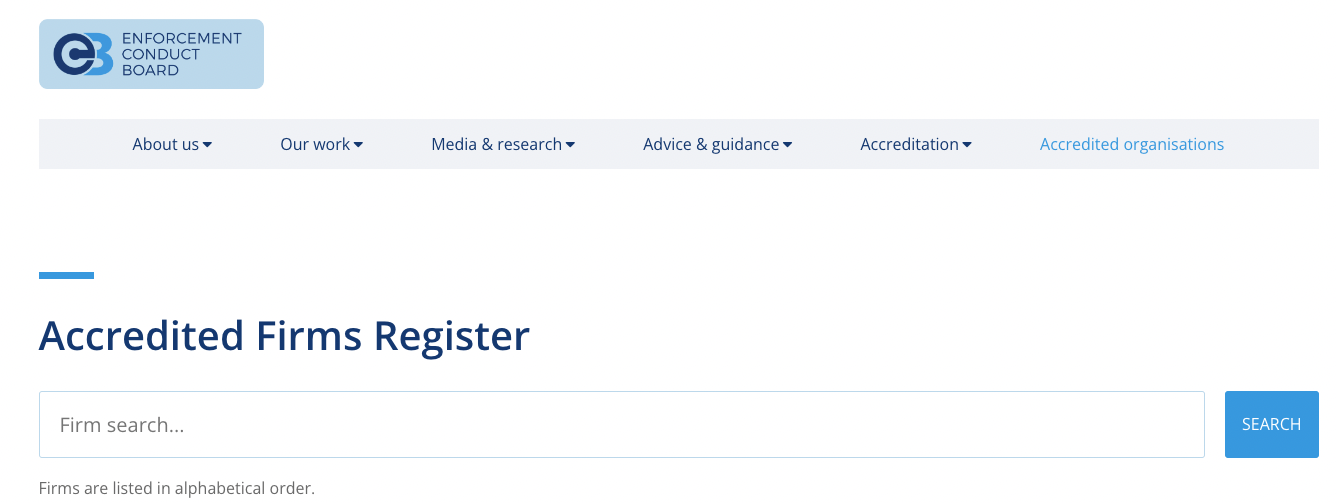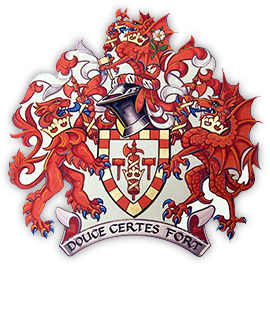The High Court Enforcement Officers Association (HCEOA) is backing the Enforcement Conduct Board’s (ECB) new accreditation scheme for the enforcement profession which has come into effect today (Wednesday 25th October 2023).
A register of accredited enforcement firms has now been published on the ECB’s website for the first time. It marks an important step for the ECB, which was set up in 2022 to provide independent oversight to the debt enforcement sector in England and Wales. Accreditation for each firm lasts for a year, after which it will need to be renewed.
The businesses accredited make up 97.5% of the market share of High Court Writs of Control.
Alan J. Smith, Chair of HCEOA, said: “This is an excellent response to the introduction of the ECB accreditation register from our members and shows their commitment to working in a responsible and professional manner. Our members are individual High Court Enforcement Officers so they can’t be personally accredited by the ECB but the companies that they operate and work for can be, and I’m delighted to see so many familiar company names on the ECB’s accreditation register.”
He added: “We’re working closely with the ECB across a number of different areas, and it is an important organisation that is working to provide independent and authoritative oversight of the sector, which we welcome. I know that our members are very much looking forward to seeing the ECB’s work in areas like developing a transparent evidence base for the enforcement sector and developing and implementing a robust code of practice including rules on how to identify and deal with vulnerability and affordability.”
In order to become accredited, firms must comply with the ECB’s accreditation framework, including meeting the following criteria:
- Complying with the requirements of the current Ministry of Justice National Standards
- Providing the ECB with Quarterly Data Returns
- Providing information to the ECB on request
- Payment of the ECB levy (which funds its operation) in a timely fashion.






